Pretty Woman is one of those movies I can watch over and over — it never gets old or boring.
But considering how many times I’ve seen it, it’s surprising that I’ve never noticed these bloopers and mistakes that tell a different story about the film.
Disney changed everything
*Pretty Woman* became a romantic comedy that captured millions and launched Richard Gere and Julia Roberts to fame.

But that’s not how it was originally meant to be. The first screenplay was titled *3,000*, written by then-struggling screenwriter J.F. Lawton. The early draft dealt with much darker themes about social inequality and corporate greed.

However, everything changed when Disney took over. The company chose to downplay the themes of class and sex work in Los Angeles. Instead, Disney gave it a big budget and turned it more into a romantic comedy.
Al Pacino turned down the lead role
For me, it’s hard to imagine anyone but Richard Gere as Edward Lewis, the wealthy businessman from New York who hires Vivian (Julia Roberts) to be his escort for a week.
The casting process for *Pretty Woman* took longer than expected, with Al Pacino initially in the running for the role of Lewis. The famous actor even took part in a casting reading with Julia Roberts but ultimately decided to pass on the part.
Although he liked the script, Pacino never explained why he turned it down. Looking back, he has shown respect for Roberts, who was a relatively unknown actress at the time.
“I mean, you could tell at the reading that this was going to be good, that it would be a hit,” Pacino said.
He also mentioned: “And this girl was amazing. I asked Gary, ‘Where did you find this girl?’” (Gary being Gary Marshall, the film’s director). Pacino’s instincts were right, as Roberts’s outstanding performance would shape her career and the film’s legacy.
The croissant becomes a pancake
In the scene where Richard Gere’s character orders breakfast in the room, there’s a funny little detail you might not have noticed. It starts with Vivian enjoying a croissant while talking to Edward.
But then, in an instant, the croissant magically turns into a pancake.
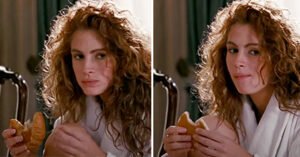
How did that happen? According to director Garry Marshall, he liked Julia Roberts’ performance in the later takes, where she was eating a pancake instead of the croissant, so they decided to use that footage.
However, this caused a continuity issue. In the first shot with the pancake, Vivian takes a second bite, but in the next shot, the pancake only has one bite missing, and the bite marks are clearly different.
It’s clearly not the same pancake!
Truth behind the iconic dress
The careful attention to costume design might go unnoticed by most moviegoers. However, whether you notice fashion or not, it’s hard to miss the iconic red dress that Julia Roberts’ character wears in the film.
The red dress represents Vivian’s transformation and empowerment during a key scene in the movie when Roberts’ character joins Edward Lewis for a night at the opera.

Vogue described the dress as “eye-catching, incredibly sexy without losing any elegance.” The genius behind that stunning dress? The award-winning costume designer Marilyn Vance.
She created six fabulous outfits for Julia Roberts’ character, Vivian Ward, and also designed Richard Gere’s stylish looks.
For example, the charming brown-and-white polka dot dress Roberts wore to the horse race was made from old silk found in a small antique fabric shop in Los Angeles — talk about recycling in style! And those chic shoes? They were by Chanel.
Richard Gere’s tie
As for Gere’s wardrobe, it was a masterclass in color coordination, featuring brown, navy, and blue-gray suits, all designed by Vance.
Now, about that famous tie that Roberts takes from a store employee? According to Vance, it was “nothing special” and definitely not a designer piece.
She bought it in a Los Angeles shop for $48.
The tie appears several times in the film, and if you watch closely, you might notice that it mysteriously changes knots from time to time.
During the polo match, Edward wears a straight-collar shirt with the tie that Vivian gave him, knotted in a half-Windsor. But in a later scene, sharp-eyed viewers can see a subtle change — Edward’s collar has turned into a spread style, and the tie is now in a full-Windsor knot.
‘Obscene’ shopping spree
When Richard Gere shows Julia Roberts’ character the glamorous world of the rich, he takes her on a wild shopping spree down Rodeo Drive in Beverly Hills.
That afternoon shopping trip? It would have cost Gere’s character at least $30,000, according to designer Marilyn Vance.
Talk about a shopping spree on steroids! It’s like they were shopping with Monopoly money — no wonder Vivian was in a daze.
The ruby-and-diamond necklace was real
The jewelry Julia Roberts wore with her stunning red ball gown — a heart-shaped necklace made of rubies and diamonds — was valued at an incredible quarter million dollars. Yes, you heard that right.
According to movie trivia sites, this ruby-and-diamond masterpiece was the real deal. In fact, while filming, an armed security guard from the jewelry store responsible for this extravagant necklace stood watch behind the director.
Jewelry box scene was a practical joke
The scene where Richard Gere gives Julia Roberts the expensive necklace is not only one of the most romantic and iconic moments in movie history, but it also has a funny backstory.
Originally, it was meant as a playful prank for the film’s gag reel.
As you might remember, the jewelry box snaps shut on Julia Roberts’ fingers, causing one of the most genuine and charming laughs ever caught on film.
The real story behind the scene came from director Garry Marshall, who explained why he and Gere decided to play this trick on the young actress.
According to Marshall, Roberts, who was just 23 at the time, would sometimes show up on set a little sleepy after a late night out.
“I said, ‘Richard, you gotta wake her up a little, so when she reaches for the box, slam it.’ It was a soft box. I would never hurt her,” Marshall explained.
It wasn’t until the final stages of editing that they decided to keep the scene in the movie. “We put it in… and it became like the trademark of the movie,” Marshall said.
And just like that, an unscripted joke turned into cinematic magic.
Edward’s disappearing shoes
As mentioned earlier, there are some mistakes in *Pretty Woman* that aren’t easy to spot on the first viewing, but some keen viewers have noticed them.
For instance, when they leave the opera and head to the park, Vivian takes off Edward’s shoes. However, as he begins to lie down, the shoes magically reappear.
Money in the boot
Speaking of things on (or in) your feet, there’s a little mystery involving Vivian’s boots that you might have missed.
When Edward gives her $100 in the penthouse, she slips the cash right into her boot for safekeeping. But later, after room service arrives with champagne and she takes off her boots, the money has mysteriously disappeared.
Did the cash vanish into thin air, or is Vivian just really good at hiding things? Maybe those boots had a secret compartment, or perhaps the $100 simply didn’t want to stick around for the rest of the film…
Four colored condoms
When Vivian offers Edward a selection of colorful condoms, it seems they have a mind of their own.
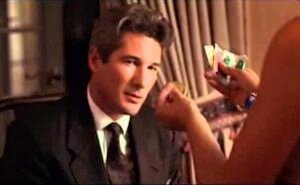
Vivian starts with four neatly arranged options (not counting that fancy gold circle one). But in the next shot, the order has magically changed.
Richard Gere didn’t like his character
Richard Gere has certainly gained from the success of *Pretty Woman*—both in his career and his bank account. But he hasn’t always been fully positive about the film, especially regarding his character, Edward. At a film festival in Venice, Gere described Edward as “criminally underwritten.” He added, “Basically, he’s just a suit and a good haircut.”
One scene in particular seemed to bother Gere, where Edward plays the piano while Vivian moves closer. Reflecting on it, Gere sarcastically said, “I mean, no chemistry. This actor and this actress obviously had no chemistry between them… I haven’t seen that in a long time. That’s a sexy scene.”
Director Garry Marshall came up with the idea for the scene after asking Gere what he usually did late at night in a hotel. Gere remembered, “I said, ‘Well, I’m usually jet lagged, so I’m up all night. Usually, there’s a ballroom or a bar, and I’ll find a piano and play it.’” Marshall then suggested, “Well, let’s do something with that.”
So, the scene was mostly improvised, with Gere explaining: “He said, ‘Play something moody.’ I just started playing something moody that reflected this character’s interior life.”
Then, just as mysteriously, the original lineup of condoms snaps back in the third shot. It’s as if the condoms were having their own little dance routine behind the scenes.
More than just onscreen lovers
If you ask me, the chemistry between Julia Roberts and Gere in *Pretty Woman* was undeniable. But the sparks didn’t just fly when the cameras were rolling — they formed a close bond off-screen too.
In 2017, Gere shared that he still talks to Roberts “all the time,” and back in the day, they would chat “three or four times a day.”
You could say it was love at first sight, in a friendly sort of way.
Even in a fairytale romance, things don’t always go as planned. Maybe that’s what makes this movie so charming and keeps us watching it again and again, year after year.
Did we miss your favorite *Pretty Woman* blooper? Share it with us and keep the fun going!
Elderly Man Tries to Sell Worn-Out Suitcase, Gets Ignored by All but a Disabled Boy Who Decides to Buy It
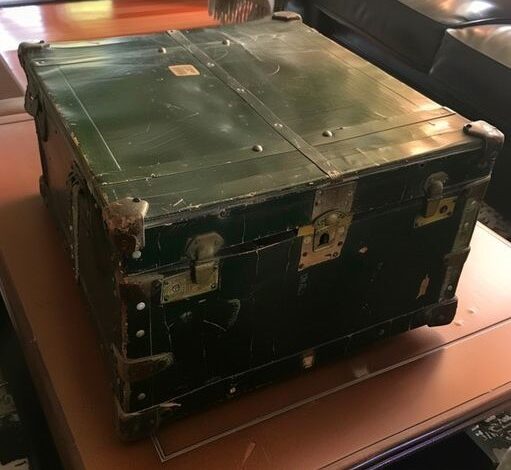
This story beautifully captures the power of kindness and the rewards that can come from selfless acts. Martin’s act of compassion toward the elderly man, even when he himself was struggling, underscores how generosity can open doors to the most unexpected blessings. The suitcase filled with money becomes a metaphor for hope, illustrating that miracles often arrive when we least expect them.
The “Suitcase Man” is a poignant character, embodying the wisdom and generosity of someone who has recognized that the greatest wealth lies not in money but in the joy of giving. His choice to share his fortune with those he sees as kindhearted teaches a timeless lesson: real wealth is found in what we can give to others, especially when it brings hope and opportunity into their lives.
Through Martin’s story, readers are reminded that no matter how hard life may seem, small acts of kindness can make a world of difference. The story is inspiring and uplifting, encouraging us to believe in the possibility of unexpected miracles and to recognize the beauty of giving without expecting anything in return. It’s a tale worth sharing with others as a reminder that acts of kindness have the power to change lives, often in ways we can’t foresee.
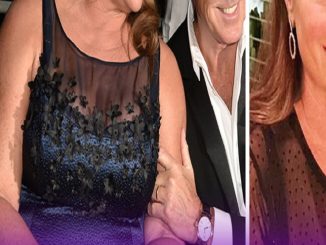
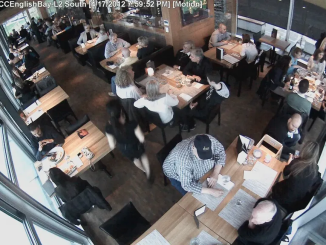
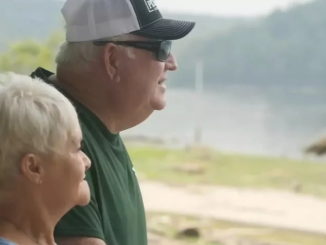
Leave a Reply